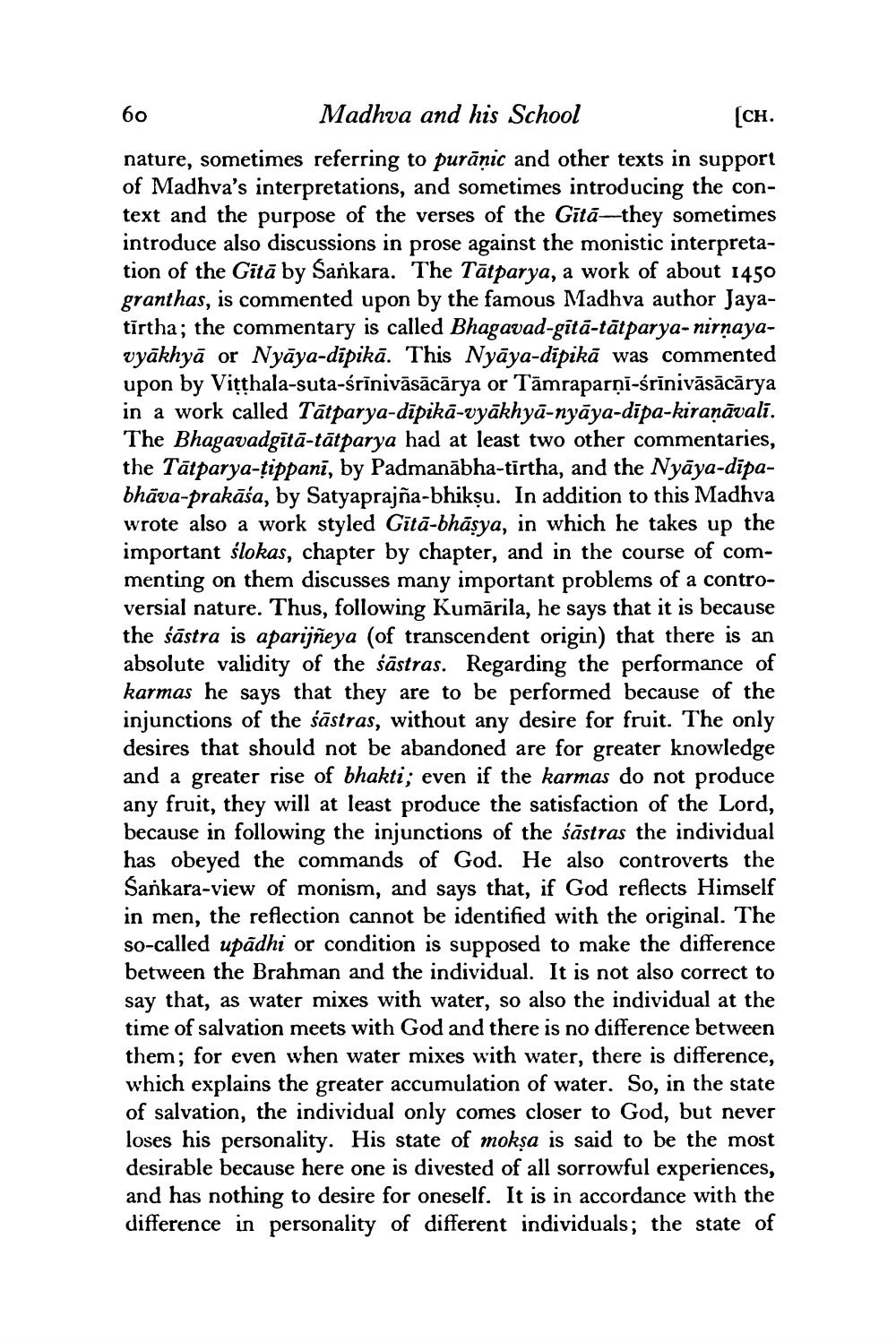________________
Madhva and his School
[CH.
nature, sometimes referring to puranic and other texts in support of Madhva's interpretations, and sometimes introducing the context and the purpose of the verses of the Gitā-they sometimes introduce also discussions in prose against the monistic interpretation of the Gita by Sankara. The Tatparya, a work of about 1450 granthas, is commented upon by the famous Madhva author Jayatirtha; the commentary is called Bhagavad-gītā-tātparya-nirnayavyākhyā or Nyāya-dipikā. This Nyāya-dipikā was commented upon by Vitthala-suta-śrīnivāsācārya or Tamraparṇi-śrīnivāsācārya in a work called Tātparya-dīpikā-vyākhyā-nyāya-dīpa-kiraṇāvalī. The Bhagavadgitā-tātparya had at least two other commentaries, the Tatparya-tippani, by Padmanabha-tirtha, and the Nyaya-dipabhāva-prakāśa, by Satyaprajña-bhikṣu. In addition to this Madhva wrote also a work styled Gita-bhāṣya, in which he takes up the important slokas, chapter by chapter, and in the course of commenting on them discusses many important problems of a controversial nature. Thus, following Kumārila, he says that it is because the sastra is aparijñeya (of transcendent origin) that there is an absolute validity of the sastras. Regarding the performance of karmas he says that they are to be performed because of the injunctions of the śāstras, without any desire for fruit. The only desires that should not be abandoned are for greater knowledge and a greater rise of bhakti; even if the karmas do not produce any fruit, they will at least produce the satisfaction of the Lord, because in following the injunctions of the sastras the individual has obeyed the commands of God. He also controverts the Sankara-view of monism, and says that, if God reflects Himself in men, the reflection cannot be identified with the original. The so-called upādhi or condition is supposed to make the difference between the Brahman and the individual. It is not also correct to say that, as water mixes with water, so also the individual at the time of salvation meets with God and there is no difference between them; for even when water mixes with water, there is difference, which explains the greater accumulation of water. So, in the state of salvation, the individual only comes closer to God, but never loses his personality. His state of mokṣa is said to be the most desirable because here one is divested of all sorrowful experiences, and has nothing to desire for oneself. It is in accordance with the difference in personality of different individuals; the state of
60




